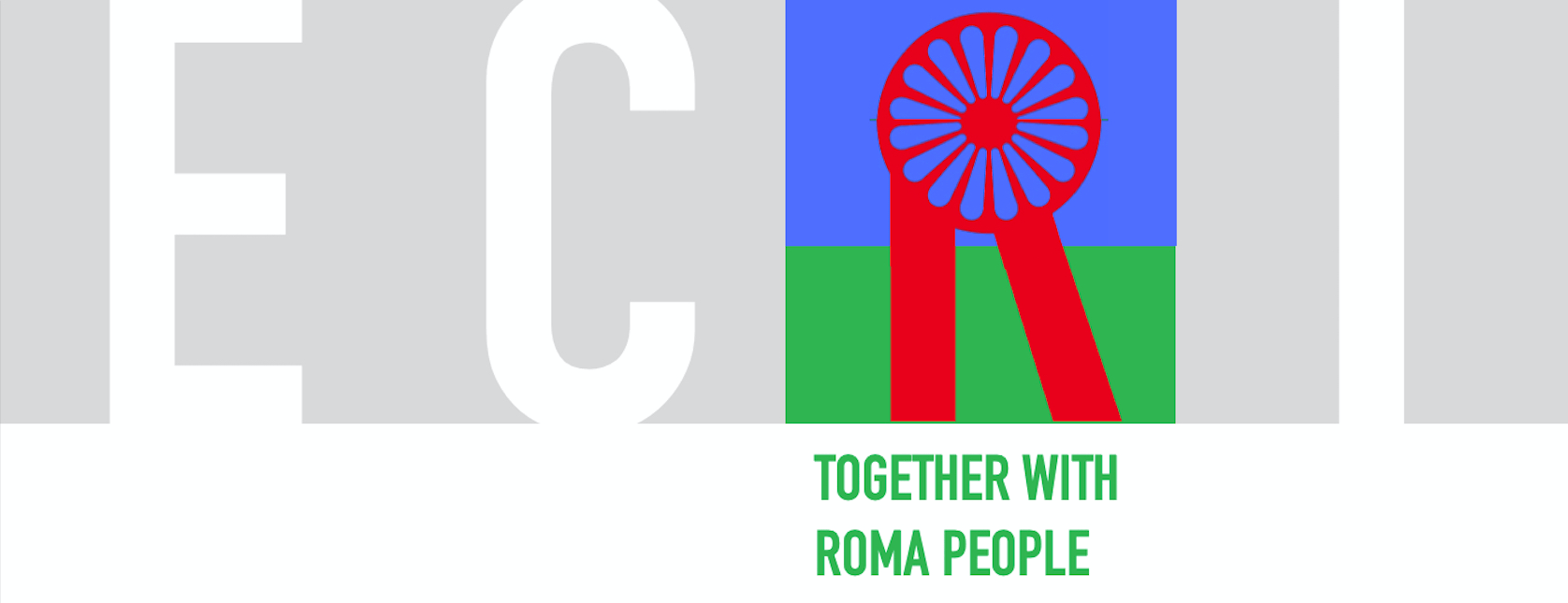Part I – The Mentorship Programme for Roma Communities
Contents
- Why do We need a Mentoring Programme for Roma Communities?
- The Mentor Profile and the Mentoring Process
- Good Practices in Education
Part II – Roma Culture and History
Part III – Concrete Measures and Future Directions
Person of contact
Bibliography
Part I – The Mentorship Programme for Roma Communities
1 Why do We need a Mentoring Programme for Roma Communities?
Roma people represent a historic European minority. The first documentary attestation of the Roma ancestors appears in 1054 in a manuscript from Mount Athos under the name of athinganoy (Sarău, 1997, p.27). However, they have remained unknown to Europe, a marginalized minority perceived as a threat to others, and persecuted for centuries because of their different way of living compared to the European. Roma have been the inner strangers for Europe, similar to the description of The Stranger in Simmel’s article (Simmel, 1950, p.1). People do not seek to know them and sometimes prefer to invent stereotypes according to their imagination, which implicitly leads to racism and persecution.
Likewise, Jean-Pierre Liegeois highlights in his book “Roma in Europe” that the least negative attitude towards Roma is that of romantic sympathy influenced by folklore, but as soon as an opportunity arises, the most negative sentiments are reactivated. “Roma, travellers, gypsies are considered thieves, noisy, dirty, immoral, cheating, not working, teaching others evil things and their art of fortune-telling inspires fear”. (Liegeois, 2008, p.141).
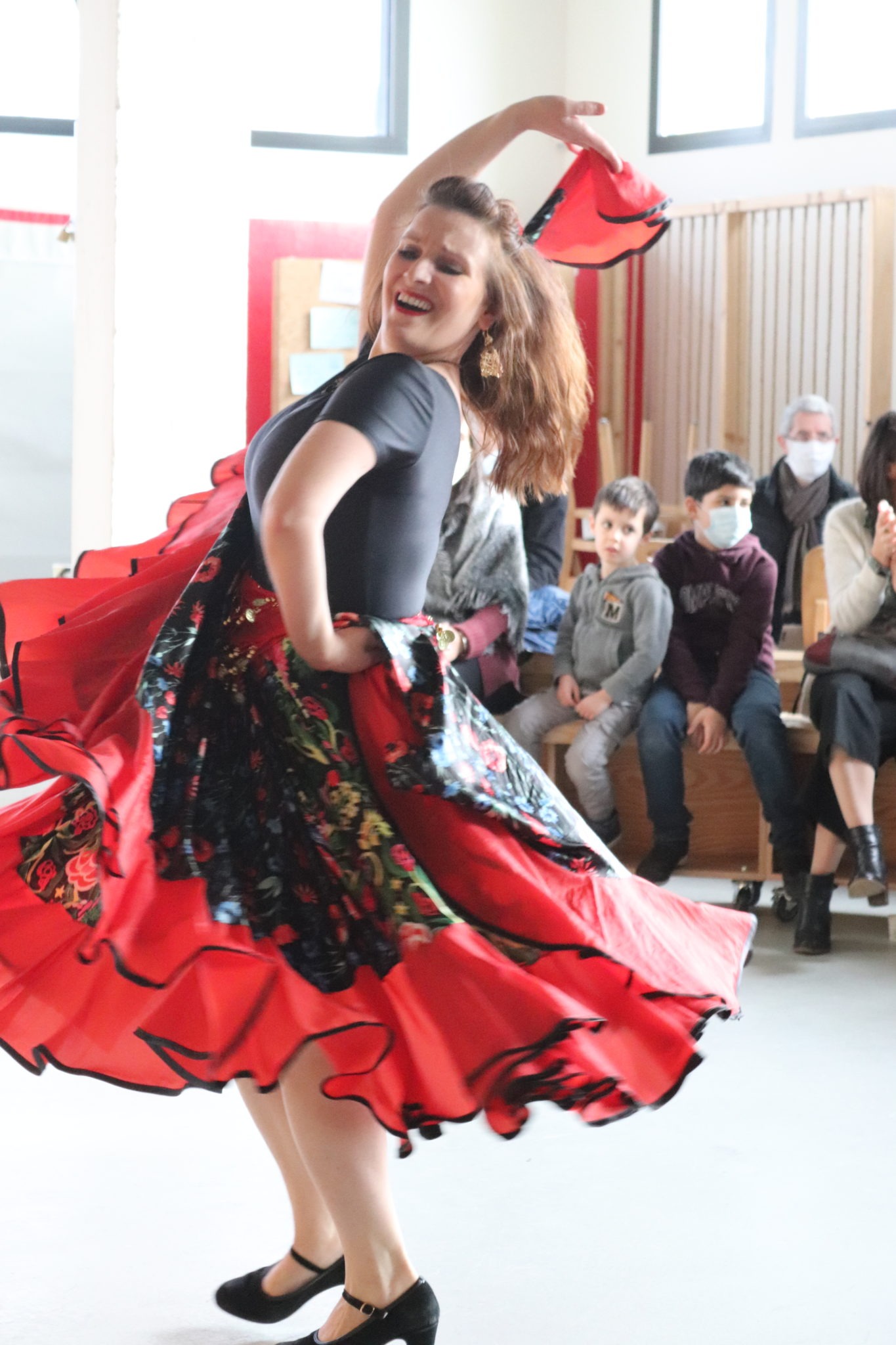
Thus, throughout history, the Roma have had a distorted and contradictory image in Europe, as having deviant social behaviour – vagrants, poor, criminals, thieves, with a deviant and uncivilized lifestyle, but, paradoxically, romantic and free. This distorted image of the Roma continues to perpetuate itself today, negatively impacting their evolution in society and their development as individuals. The following common case of a Roma girl being rejected by a Romanian kindergarten is presented here to illustrate how this image affects them.
Rebeca is a student at a private kindergarten in Romania. She is Roma and has some minor communication difficulties. These seem to be strong enough reasons for the kindergarten to reject her. Even if Rebeca attends kindergarten and makes friends, and there is progress in her communication abilities with the help of the kindergarten speech therapist, these are not enough for the headmistress and she keeps asking her grandmother to take Rebeca to another kindergarten “more suitable for her”. What will the future of Rebeca the adult be if she is rejected by the education system when she is most in need? What can be done for Rebeca to be included in the education system and not to be deprived of her right to education, in order for her not to become an adult who, in turn, will reject the system and not develop educationally and socially? What kind of support does Rebeca and her grandmother need in order to fight for quality education? Can the school mediator help Rebeca, and where is the cultural or social mediator? Does Rebeca need another type of support, specific, more applied to her situation, which not only mediates but also provides support from within the community / family to the society that often does not see beyond the stereotypes and prejudices with which it is accustomed?
Rebeca’s case is not unique in the Romanian or European society when speaking about the Roma community, because people often act driven by their own stereotypes and images without checking the reality. The people interviewed for this methodology have also had this type of experiences, but they have found the internal resources to go further and even reach out to support others to overcome such situations.
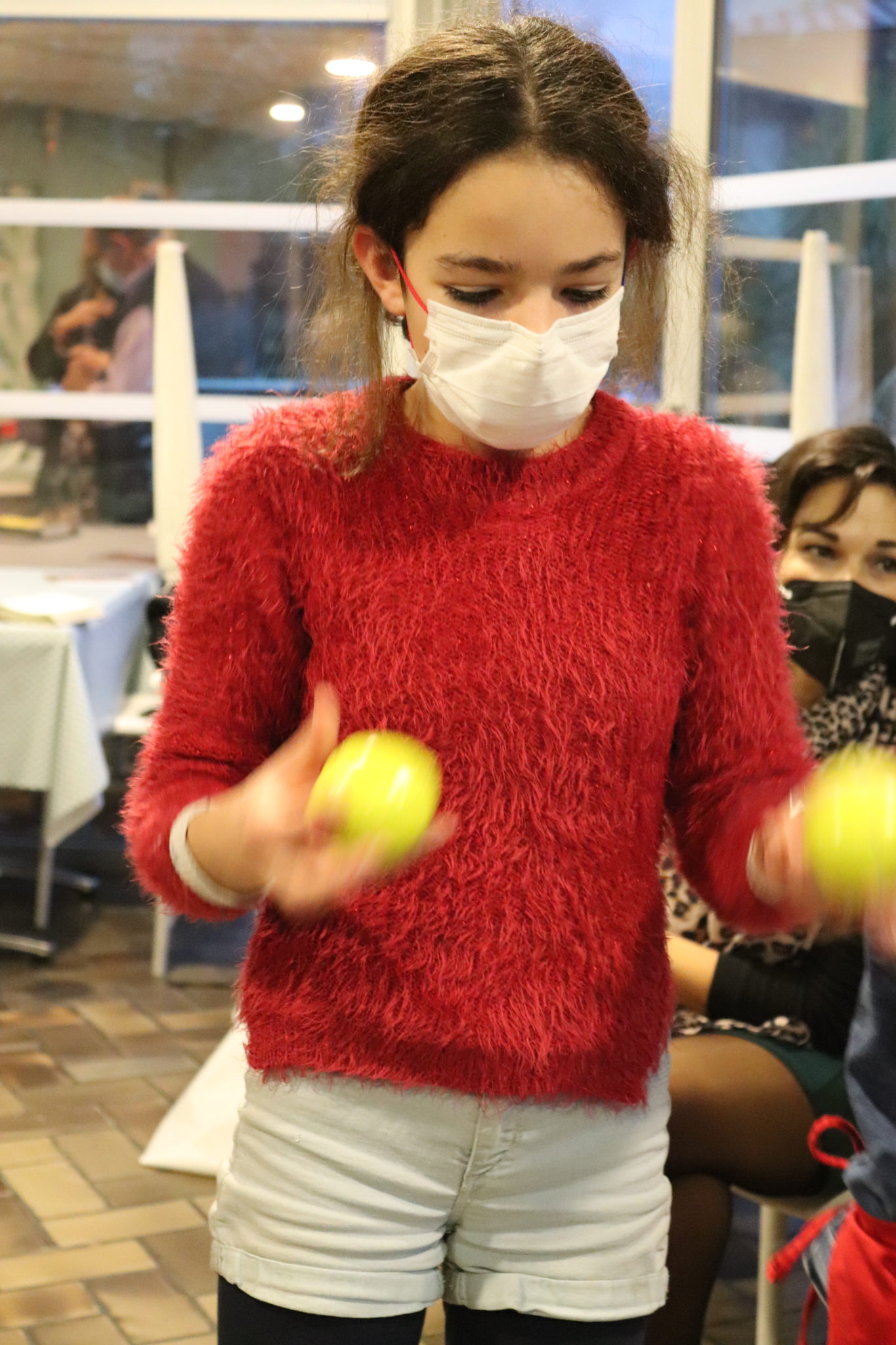
To argue the need for mentoring for the European Roma community and to draw some general lines about what a mentoring programme means, there have been conducted a series of interviews with Roma people who have succeeded professionally, and some of them work in Roma communities, trying to support children like Rebeca to develop harmoniously and cope with the rejection they are still facing in society. The interviewees are teachers, social workers, people working in the culture sector, and even students, who have at least once in their lifetime gone through rejections like the one presented above, but who managed to overcome them in one way or another. Now, they have decided that it’s worth supporting other children / young people who are going through such situations. They understand the difficulties, and how necessary it is for people to work with others who have already been through this kind of experiences.
Cristian Pădure is a lecturer at the Department of Romani Language, University of Bucharest, and Romanian language teacher in the pre-university environment. When interviewed in June 2021, he mentioned that he would have needed a “mentor” in his educational process because unfortunately his parents did not know how to support him, and at school he was rejected or ignored by both teachers and colleagues. Cristian was one of the few Roma in his school, and he repeated the first year because he did not know the Romanian language since at home his family only spoke Romani. This did not discourage him and he continued school, but not all students have this endurance. Some of them, when they have such failures, give up. This is the reason why they need someone to support them from the inside, and to take their side when they encounter difficulties.
Mrs. Alecu Florica is a teacher at Bora School in Slobozia and a mentor in a project carried out by the Roma Education Fund Foundation for Roma students from pedagogical high schools. She says that she had her brother as a mentor, who was a writer. If her older brother had not been with her, her educational career would have been much more difficult. That is why Mrs. Alecu Florica chose to be with the Roma students who need her, and to support them when they encounter difficulties in their educational path.
Crina Mureșanu, Roma social worker and Political Science PhD., told us how difficult it is when social workers do not seek to understand the Roma they work with, but they only judge and treat them according to the image they have of them. Having practiced this profession for years, has made Crina realize how important it is for the social worker who works with Roma to be Roma or at least to know aspects of Roma culture and history very well in order to be able to offer real support regarding work.
The need for mentoring is urgent if we want to bridge the gap and to provide real support to the Roma community. It needs to be supported from inside, by people who have gone through the same experiences of rejection and discrimination, and who have succeeded in overcoming them.
At the same time, when measuring the importance of a mentoring programme for Roma communities, every individual case has to be taken into consideration, in view of reaching their maximum potential. Perhaps these people could have developed even more if they had benefited from an appropriate mentoring programme tailored to their needs.
A mentoring programme is an opportunity for development and an essential instrument that can change the negative perspective of the society on the Roma community, which is perceived as a problem. The result of this process is a fair exchange between the two cultures, and not a unilateral influence of the majority, as it is the case now in many situations.
Therefore, the goal of this project is, on one hand, to clarify the concept of mentoring with its preliminary steps, methodology and structure, and, on the other hand, to explain how important it is to know the culture and history of the community one works with, in this case the Roma, in order to truly support its members.
In summary, a European mentoring programme is needed for the Roma community to:
- support people in their difficult moments;
- help them in finding a better version of themselves;
- support them in coping with different challenges in their lives;
- encourage the mentees to reach their full potential;
2 The Mentor Profile and the Mentoring Process
For a mentor to be adequate, they must have a series of skills and competencies that they can put into practice in the mentoring activity. Firstly, the mentors must have a more elevated professional status compared to the person or group they mentor. Secondly, they must know and understand the cultural and social specificity of the community with which they work with, in order to be able to support these people in their development and process of becoming independent.
The notion of mentor was borrowed from Latin and it refers to an educated person who guides someone else, an inspiring spiritual leader. However, even the Latin language borrowed it from ancient Greek. Mentor was a friend of Odysseus and an educator of Telemachus. Thus, its synonym is the word educator, but its deeper ancient meaning is that of a private educator responsible for the education, practical and spiritual initiation of a young person in the world full of challenges. Therefore, the mentor refers to the image of the sage who is talking to the novices. In other words, the mentor is a guide to the one who is learning, using their expertise (knowledge + personal experience in the field) and also their personal example as a tool. The meaning of a spiritual leader shows us that mentoring is based on the fact that those who follow do that because of the example of their leader. So, the mentors need first of all the intrinsic motivation of those who they mentor, as well as the desire of those who are apprentices to resemble them.
Another way to consolidate the meaning of a mentor is to analyse the term encountered in botany, where a mentor is a graft from an old plant inserted on a young one in order for it to lend its properties. This comparison is also suggestive for the process of training a person, or in an even broader sense, for the personal development of children and adults. Therefore, the similarity highlighted here is the “borrowing of the desirable, beneficial properties” of the mentor, without necessarily meaning the imitation thereof. The whole process leaves room for the personality of the one who follows the mentor, and the intention is that the apprentice may even exceed the mentor. Thus, the process results in important personal, but also educational, professional, and economical development. It can be carried out by strengthening the trust between the two parties, and it can even lead to a spiritual development, not necessarily in the religious sense, but rather in the sense of seeking and discovering the maximum potential, as well as the meaning of life.
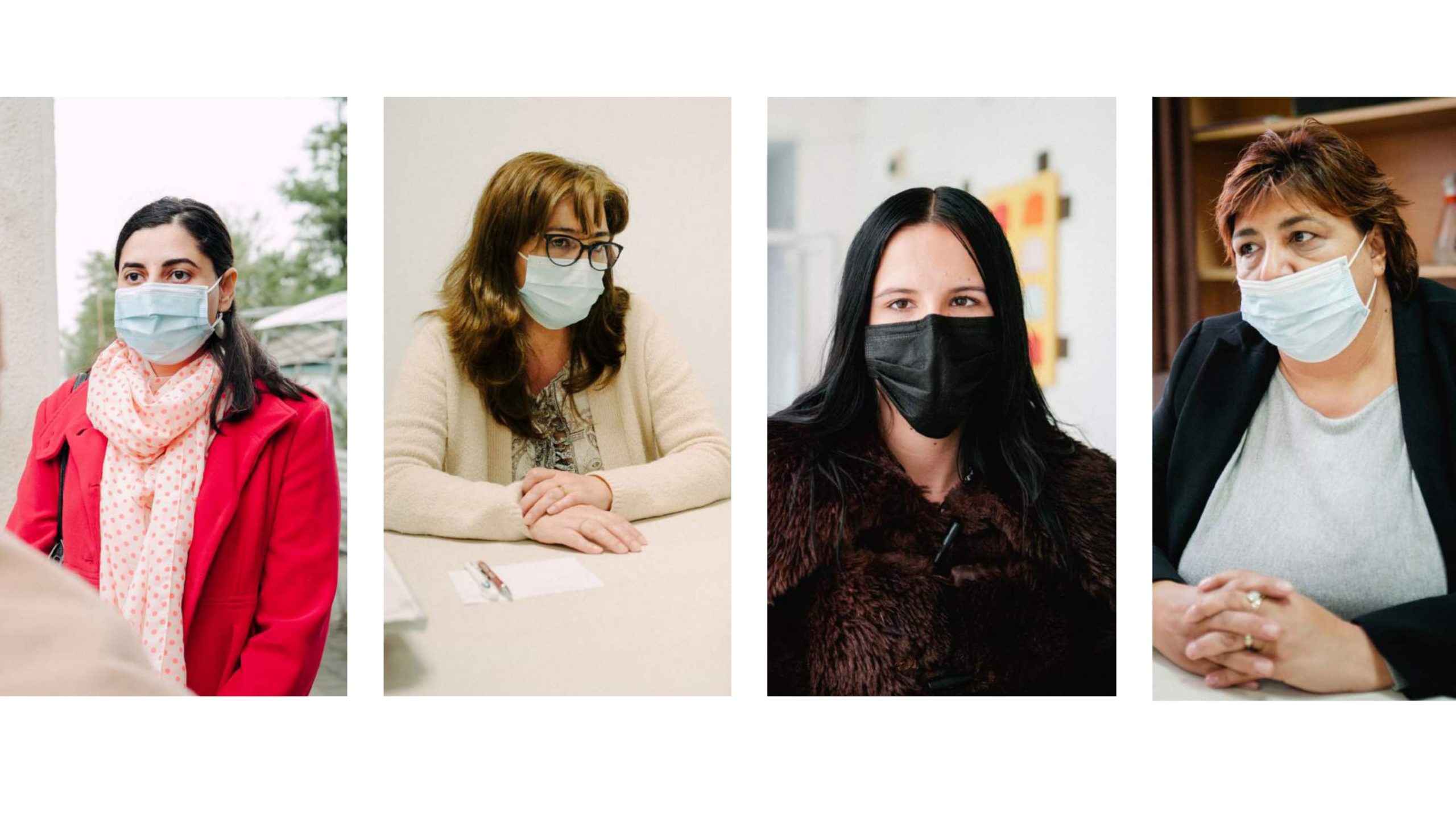
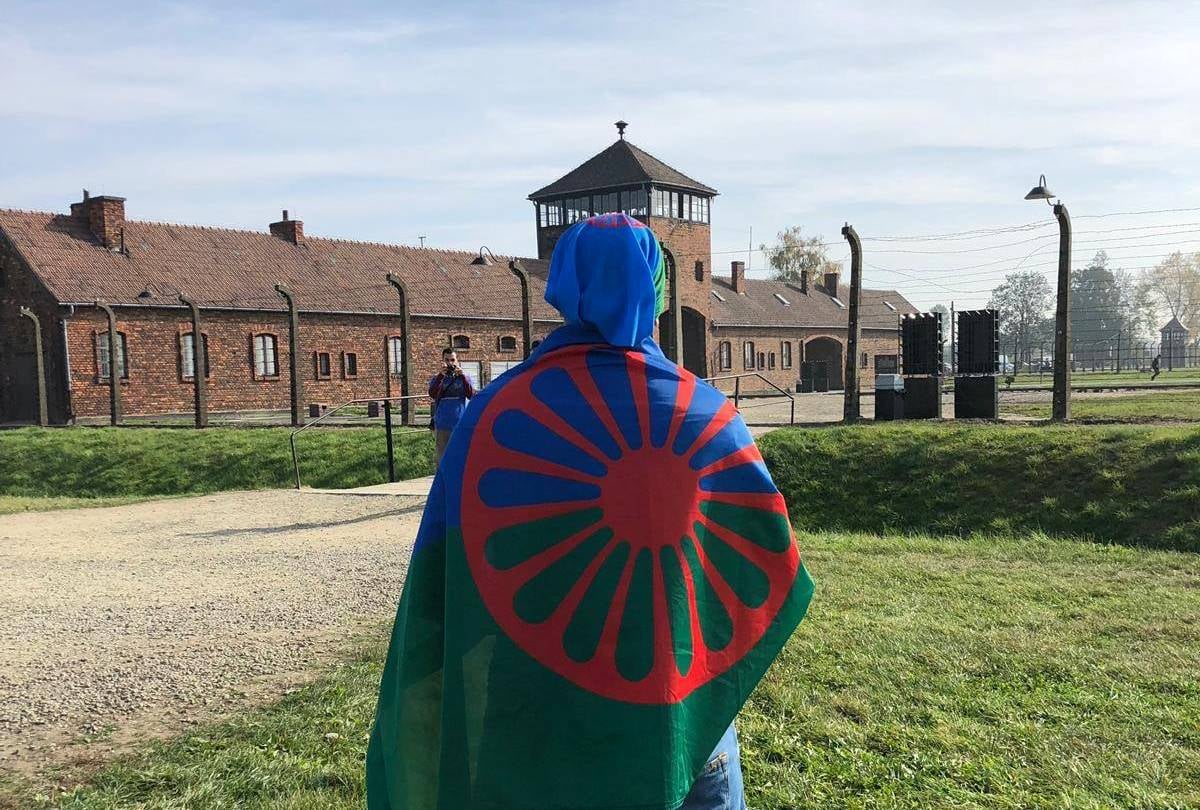
Regarding the aspect of trust, another definition for mentor indicates that he/she is a “wise, trustworthy counsellor, teacher, or coach”. Therefore, a mentor is not simply a person who helps another to learn something that in other conditions would have learned harder, more slowly or not learned at all. The mentor is much more than that; mentoring entails on the part of the mentor involvement, knowledge of the other and openness, so that in the end, the mentored person or group can be sure to listen and follow.
In the common sense, the mentor is a person with a certain experience, accepted as a guide by a person or a group who goes through a series of challenges in different areas. The mentor can facilitate the transition of the person or group to a better, improved or solved situation (in educational, professional, social, spiritual terms). The mentor can only achieve this through successive support and interventions, and by successfully overcoming barriers and challenges that may inevitably arise. In this sense, mentoring is a developmental relationship in which both the mentor and the mentees are involved in the dynamics of finding solutions through permanent consultations and constant monitoring of the whole situation. The transitional aspect must be emphasized here, in the sense that the mentor plays a role in the development of a person or a group for a certain period of time, a critical period in which the mentees need support and guidance, as they fail on their own to find the best solutions to solve or improve the difficult situation they are going through.
Additionally, in the specialised literature, mentoring is defined as the process through which skills and information is transmitted from the experienced people to the ones who need support. According to Barnett (1995), the mentors can be “teachers, coaches, trainers, role models, protectors and sponsors up to a certain point during their relationship with the mentees. They can provide opportunities for the development of others by identifying situations and events that contribute with knowledge and experience to the lives of those mentored” (Barnett, 1995, apud. Crocker C., Harris, S.). The notion of protectors is important, in the sense that mentors must defend the interests of the mentees, to fight and represent their needs and rights in relation to others (local authorities, school, society in general). Some good examples here are the concrete situations that arose from the discussions with the representatives of the Roma communities in Bulgaria, Stolipinovo district, Plovdiv, who also highlight the importance of the mentor’s specific knowledge of the Roma community. In an ideal situation, the mentor should come from within the community in order to be able to defend its interests, knowing them in detail. Moreover, regarding the discussion on this topic, it was highlighted that an important role in the case of the mentor for Roma communities is played by the ethnic aspect, thus it is preferable for the mentor to belong to the Roma ethnic group, in the sense that she/he can better understand the specificity of the Roma and can more easily integrate in the role of representative and defender of community interests. Of course, the non-Roma mentor is not excluded, but they need to have relevant experience in working with Roma and, very importantly, to be recognized at the local community level, or at the level of the extended community of people working in the field of Roma mentoring, as having the qualities of a good mentor and manifesting genuine intentions in getting involved in working with the Roma and solving the situations for which one intervenes.
In Boston’s definition (1976), mentoring implies “a protected relationship in which learning and experimentation can occur, as well as potential skills can be developed.” The aspect of the protected relationship is also emphasized, in the sense that mentoring, especially mentoring as a process, takes place in a predefined framework, monitored and that gives a certain security and safety to both the mentor and the mentored-one/s. At the same time, the definition highlights the learning component, first of all from the mentors, who take elements from the mentor’s experience, but not only. Learning is also valid for the mentor, who gets to enrich his experience, skills, and competencies, with each mentoring process in which she/he is involved, taking in particular elements from different contexts and situations.
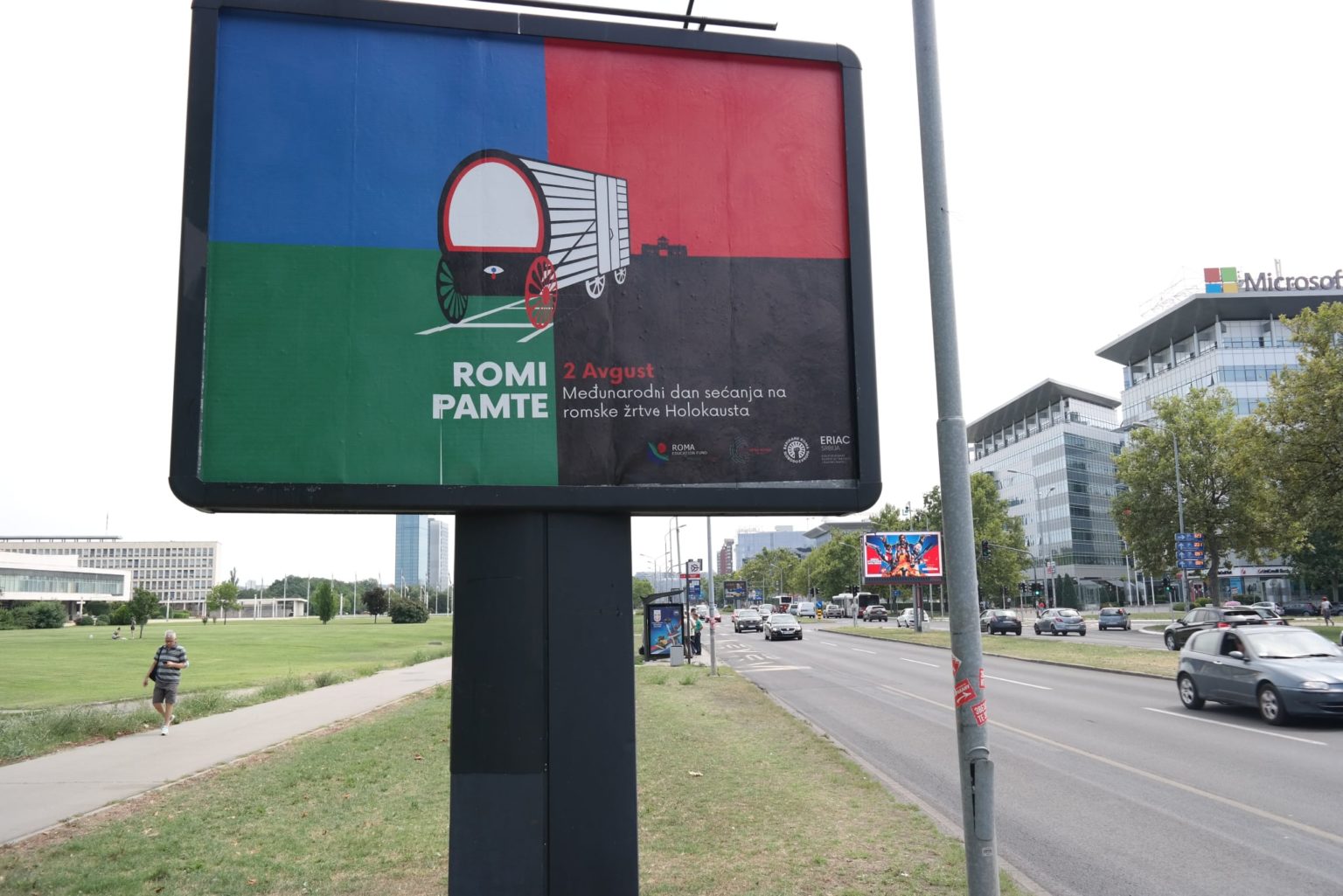
Photo credit: Roma education fund
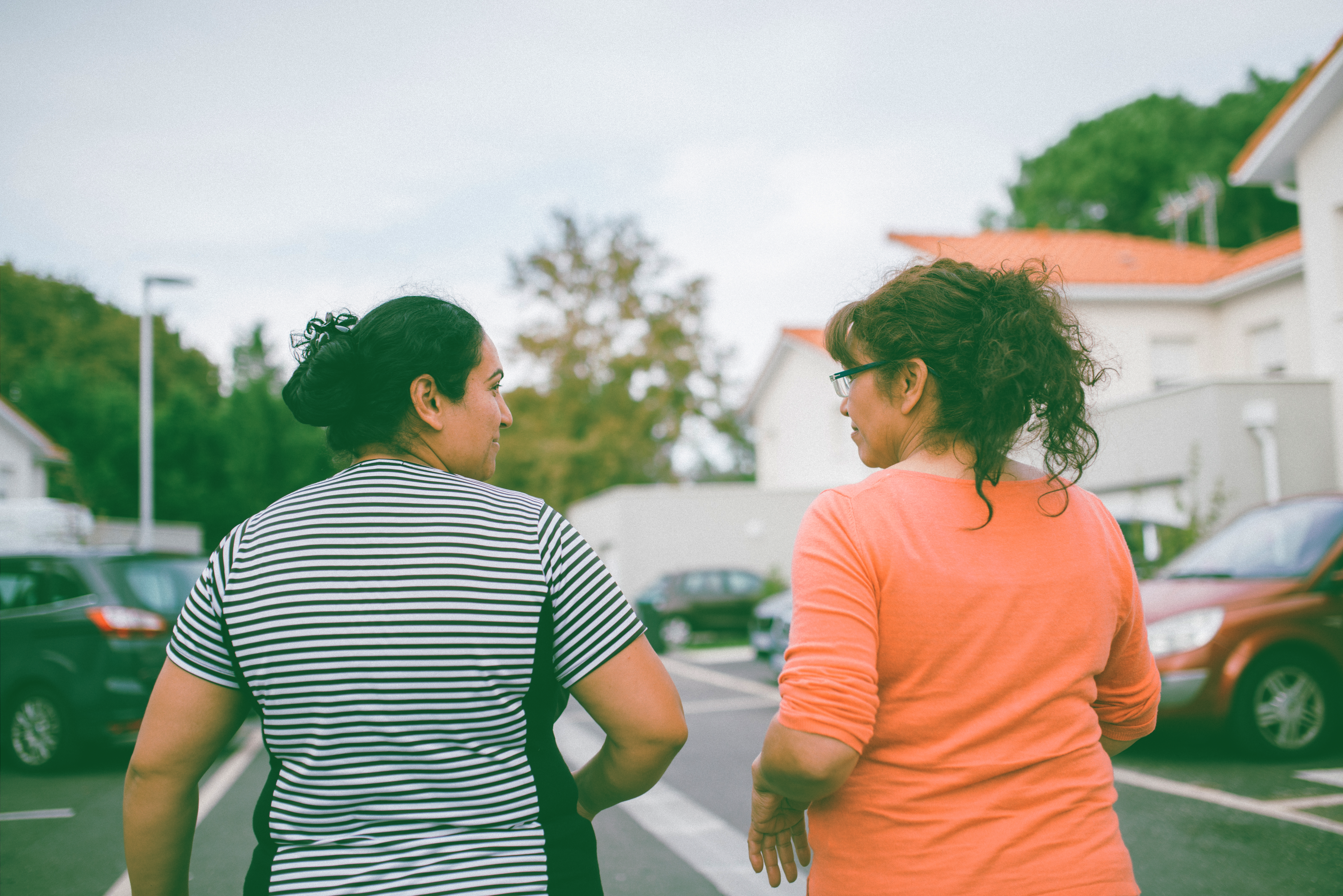
Another definition of mentoring is that of Shea (1992), for which mentoring involves a significant, long-term and beneficial effect on another person’s life or style, generally as a result of one-on-one personal contact. A mentor is a person who provides knowledge, insight, perspective, or wisdom that is useful to the person being mentored”. Thus, mentoring not only aims to solve a specific situation or momentary problem, but also takes into account the long-term effects, precisely because it is also aimed at the further development of mentoring, even involving major changes in lifestyle, perceptions, beliefs or even certain values. Another aspect highlighted in this definition is the relationship between the two parties, with reference to individual mentoring, which, in certain situations for increased efficiency and guaranteed results, is recommended to be one-on-one. This may be the case of mentoring in education, where the personal relationship between the mentor and the developing person is essential; the student needs a customized intervention programme as well as meetings in which he feels supported and guided according to his specific needs.
Similar aspects are noted in Kay’s definition, which describes mentoring as “an interactive, one-on-one process to guide the development of learning, based on the premise of active involvement of both parties, the assumption of their obligations according to the statutes” Kay (in Croker C., Harris, S., 2002). In addition, it suggests that mentoring is an “effort” in terms of the involvement and responsibilities that each party assumes and that some effort needs to be made to be successful. At the same time, we can see another feature of the mentoring process, encountered at various times during the programme, namely that it is not always comfortable to get out of the position or situation you are used to, even if it is difficult, and some effort must be made to overcome that situation. The aspect of lack of comfort is valid both for the mentored person, who has to get out of a certain situation, but also for the mentor, who has to constantly adapt to the new situations he encounters and overcome his own barriers for the well-being of the mentored person or group, even if this is not easy for the mentor.
That is why the training of mentors is very important. A successful mentoring programme requires first and foremost initial training in which the mentor learns the concepts and principles they are going to put into practice. Even in the case of a more experienced mentor, initial training is important, on one hand because they can learn new things about the specifics of the community or group they work with, but also for a good alignment of values and principles shared by the whole team running the mentoring programme. For example, it is very important that there is a clear equivalence between mentor, trainers and the project team with respect to values such as respect, fairness, non-discrimination, empathy, or equal opportunities. Moreover, in the case of mentoring for Roma groups, initial training is especially important for learning about Roma culture and history, in general, or perhaps even more in detail, about the specifics of the community to be addressed. Also, the Romani language – or basic elements regarding the Romani language – is an important component in the mentoring process in Roma communities, a part that can also be included in the initial training of mentors.
The initial training is as important as the ongoing training of mentors and their monitoring throughout the process by knowledgeable people from the project team, or from the institution that runs the mentoring programme. This has the aim of supporting and providing constant and constructive feedback in order to achieve the proposed objectives as efficiently and realistically as possible. Thus, in the ongoing trainings, individual or group meetings can also take place in order to discuss different aspects that the mentor is facing at that moment. For example: “Students face difficulties at school in their relationship with teacher X”, or: “Student X is frequently absent and at risk of dropping out of school”, or: “X City Hall is late in issuing the documents required to solve the housing problem for Y family”. Thus, for each case, both the trainers and the other mentors participating in the course can intervene with proposals to solve or improve different situations. For example: “Talking first with the school principal and then with the teacher in question about his relationship with the students in the class”; “Talking with the family of the student at risk of dropping out of school and identifying the causes that led to this situation”; “Requesting an audience with the mayor for a timely discussion on the status of the requested documents” etc.
Of course, in the development of mentoring programmes in the future, it is also opportune to have a final training or meeting of mentors in which to share, on one hand, the examples of good practice, but also the challenges or things that were more difficult or went in another direction than the predetermined goals. Let us consider the example of a student who dropped out of college and got a job. Thus, even if the initial goal of the mentor was to support and motivate the student to stay in college and complete their studies, we should finally understand that it is not necessarily a tragic thing that they decided to get hired, if that was their wish, and maybe there are opportunities for professional development in the field they have chosen. Therefore, future mentoring programmes, in addition to making the objectives more flexible and correlating them with the mentee, including during the process, should consider the possibility of modifying or even changing the initial objectives, depending on the dynamics and needs of the mentored individual or group, as long as they remain within the parameters of the values and fundamental principles of the project. Usually, these trainings are carried out by psycho-pedagogues, psychologists, school counsellors, experts in Roma culture, sociologists, anthropologists so that the mentoring process has an integrated approach that meets the needs of those mentored.
The mentoring activity can be applied in different fields, such as educational, cultural, and social, with respect to employment or obtaining a house; mentoring can also take place in areas such as the artistic, professional or religious domains. For all these areas mentioned above, mentoring can work in two main forms: The Mentor as an image and Mentoring as a process.

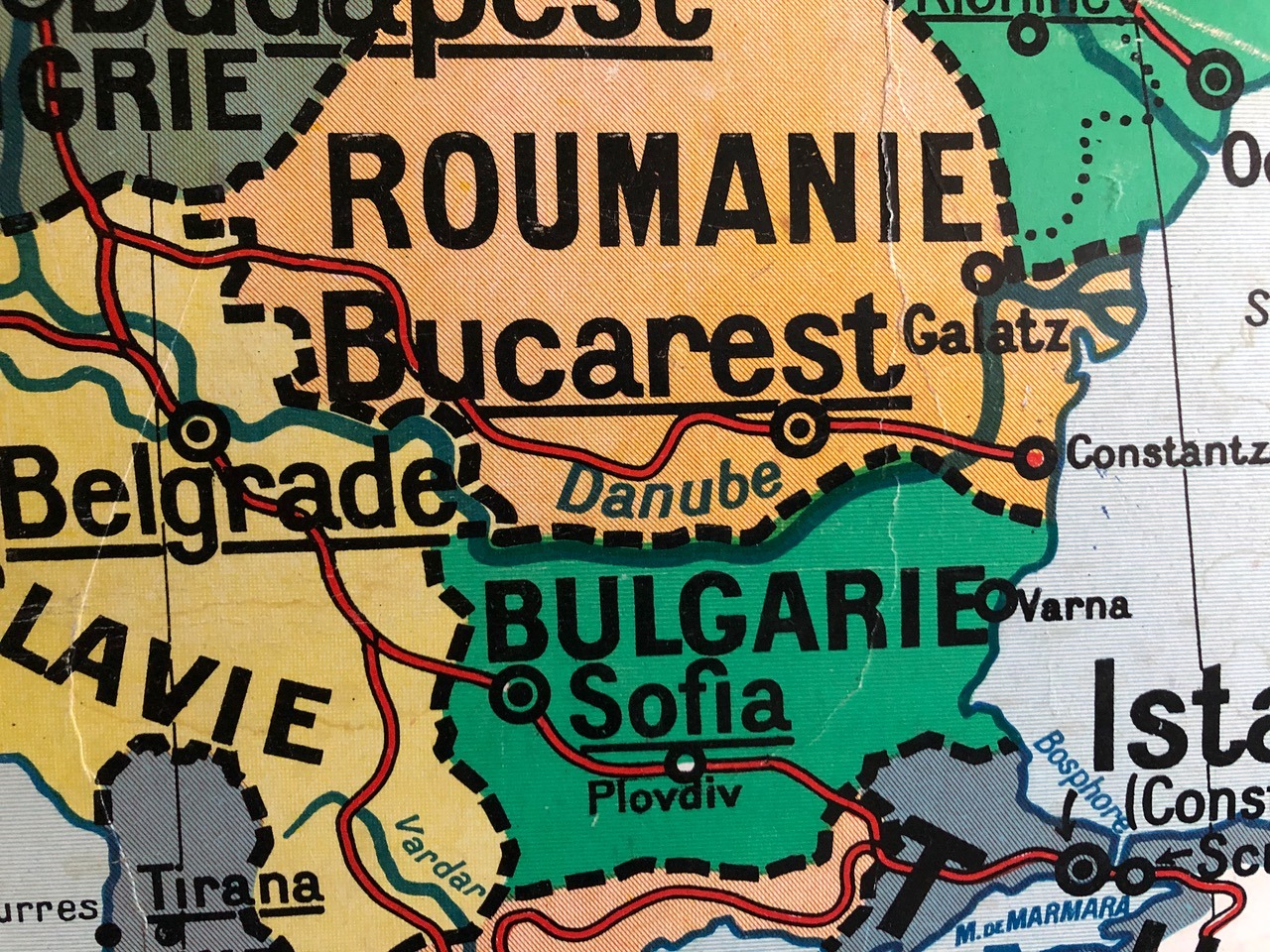
The Mentor as an image involves someone, most often a young person in training, choosing a public figure as a reference term or a famous person as a source of inspiration. The mentor as an image represents a model that the person wants to follow; the mentee demonstrates admiration, devotion, determination, commitment, aspiration, involvement, and in general, a lot of emotion towards them. Most of the time, the person who assigns a mentor as an image does not get to meet or interact directly with his mentor, the relationship therefore implying distance, lack of mutual feedback, or collaboration that serves a common interest or purpose.
The mentor as an image is even referred to in official documents, its importance being recognized in the personal and professional development of a person or a group. Such an example is found in Romania, in the Occupational Standard, published in the Official Gazette no. 713 of October 22, 2007, where we find the following definition: “Each of us had a mentor at least once in our lives, a model we admired and tried to imitate, even a proverb said that imitation is the sincerest form of admiration” (Occupational Standard, page 1, 2007, apud Trăistaru Maria, Fundamente teoretico-explicative ale mentoratului românesc, 2018, EDICT – Revista educației – ISSN 1582 – 909X).
On the other hand, mentoring as a process involves a much more structured and organized activity. Mentoring as a process most often occurs in a predetermined framework, with certain coordinates, in which the two parties involved, the mentor and the mentee/s have very clearly defined roles. In this regard, the mentor establishes, among other things, a set of objectives, customized in relation to and in consultation with the mentored person or group, as well as a plan of actions, activities, methods and strategies to achieve those objectives. The mentored person or group has the responsibility to follow the programme, to work with the mentor, to consult with him. By strengthening a relationship based on mutual trust, the mentored person or group allow themselves to be guided by their mentor and to partially or fully meet those goals that are recognized as the most important and accepted by both parties.
Coordination in the mentoring process involves the establishment of a framework and directions in which mentoring activities can take place. Of course, they can change or adapt depending on the specifics of the person, or the mentored group, or depending on the dynamics of the process, changes or unforeseen things (perceived as disadvantages or, conversely, as opportunities) that may occur along the way.
Another important feature of mentoring as a process is the exact period of time in which the activity takes place, involving a certain frequency of meetings, a rigorous planning of activities, correlated with the proposed objectives, as well as a series of deadlines by which certain tasks to be performed in order for the mentoring process to be effective and to follow the desired trajectory.
Finally, mentoring as a programme is addressed to a person, or a clearly defined group of people, registered as a target group and monitored according to a set of fixed criteria from the beginning of the programme to its end.
In summary, mentoring as a process includes the following key features:
- Structured mentoring programme
- A specific period
- Clear objectives
- Clear and structured activities
- A specific target group
Thus, it is distinguished from mentoring as an image, which is defined by:
- The admiration of a famous person from a distance
- Mentor as an image representing a model
- Lack of a clear structure and programme
- One-way relationship without receiving feedback
The optimal goals of a mentoring programme are:
- To build the character
- To learn life skills
- To obtain economic and social stability
- To gain self-confidence
- To discover their own potential/inner strength
The skills of a good mentor are:
- To be a person with an elevated professional status compared to the mentee/s
- To know and understand the cultural and social specificity of the community with which one works;
- To support the people one works with in their development and independence.
- To adapt to the socio-cultural context of the community;
- To be a good communicator;
- To be empathetic to the mentees’ needs
- To document oneself about the work to be done and to apply what one learns in one’s work;
- To treat the people one works with on an equal footing and to build relationships based on mutual trust with them;

3 Good Practices in Education
Therefore, mentoring is a complex process that requires mutual trust and the support of the mentors to develop harmoniously on all levels, discovering their intrinsic motivation to evolve. As mentioned above, mentoring can exist in any area of social life because people need support to achieve their goals and dreams. The following include some examples of good mentoring practices in the field of education, this being the main field of activity of the Roma Education Fund. Roma Education Fund Foundation carries out educational projects with a focus on the Roma minority, which have a strong mentoring component for Roma pupils, students and teachers, but also projects whose main purpose is mentoring to support the community from within.
Below are two of the most important successful mentoring projects developed by the Roma Education Fund:
Project Romaversitas
This project lasted for a period of two years (2016-2018) and was addressed to Roma students from the University of Bucharest from different faculties. The main goal of the project was to increase the academic performance and graduation rate, while building the advocacy, self-esteem and identity of about 80 Roma full-time students. Its main activities were mentoring and tutoring to support these students to develop professionally and personally. Students received both individual and group support from mentors. The individual support consisted of counselling and career orientation, delivering learning techniques, finding the balance in the relationship student – family – school, helping the student to plan their time, guiding the students to elaborate individual study plans, support the beneficiaries to adapt in the new environment, show them the opportunities inside the university (library, medical office, youth club, theatre club, educational competitions etc.) and outside (different youth clubs, theatre, hospital, city library etc.). The group support facilitated the interaction between the beneficiaries and students from other universities, encouraging the participation of the beneficiaries in extracurricular activities: exchange experience meetings with other beneficiaries, organizing group activities that can contribute to increasing their self-esteem and assuming their ethnic identity (inviting role models, mini training session delivered by Roma students), encouraging the interaction with other youth groups, local Roma NGOs). The frequency of individual meetings was once a week, and group meetings once a month.
In order to be a real support to the students they worked with, the mentors received initial training on what a mentoring programme means and how to be with the students. This training was conducted by psychopedagogues and psychologists specialized in working with students and experts in the field of Roma culture and history. Even though Roma mentors were targeted in this project, Roma culture and history had to be brought back into discussion especially that important topics on Roma history and culture are not taught in school. As a result, in such a programme it is important to make these topics known and to discuss them even with Roma students who have not had the opportunity to know their own history. The mentors also benefited from continuous training, monitoring, coordination as well as the opportunity to share their field experience and the difficulties encountered in working with students to find the best solutions in providing support to mentors.
As for the selection of mentors and students, a national announcement was made and then they applied, meeting the required criteria. It was very important at the project level for the mentors to be professionally fulfilled in order to set an example for the students. The allocation based on the professional fields was also taken into account, so that each student had a mentor in his field of activity.
In addition to mentoring, students benefited from other opportunities for their professional development: English language courses at a specialized school (British Council), IT courses taught by specialists, workshops on Roma culture and history, paid internships within the Foundation, the provision of grants for mini-projects for students to develop, and the provision of support from mentors in the implementation of these mini-projects. All these activities aimed to motivate Roma students to continue their careers despite all the difficulties encountered – because of the society, educational system or even family. Another important goal of the programme was to make students feel that someone is with them in this educational endeavour and helps them make the best decisions for their development and reach their full potential.
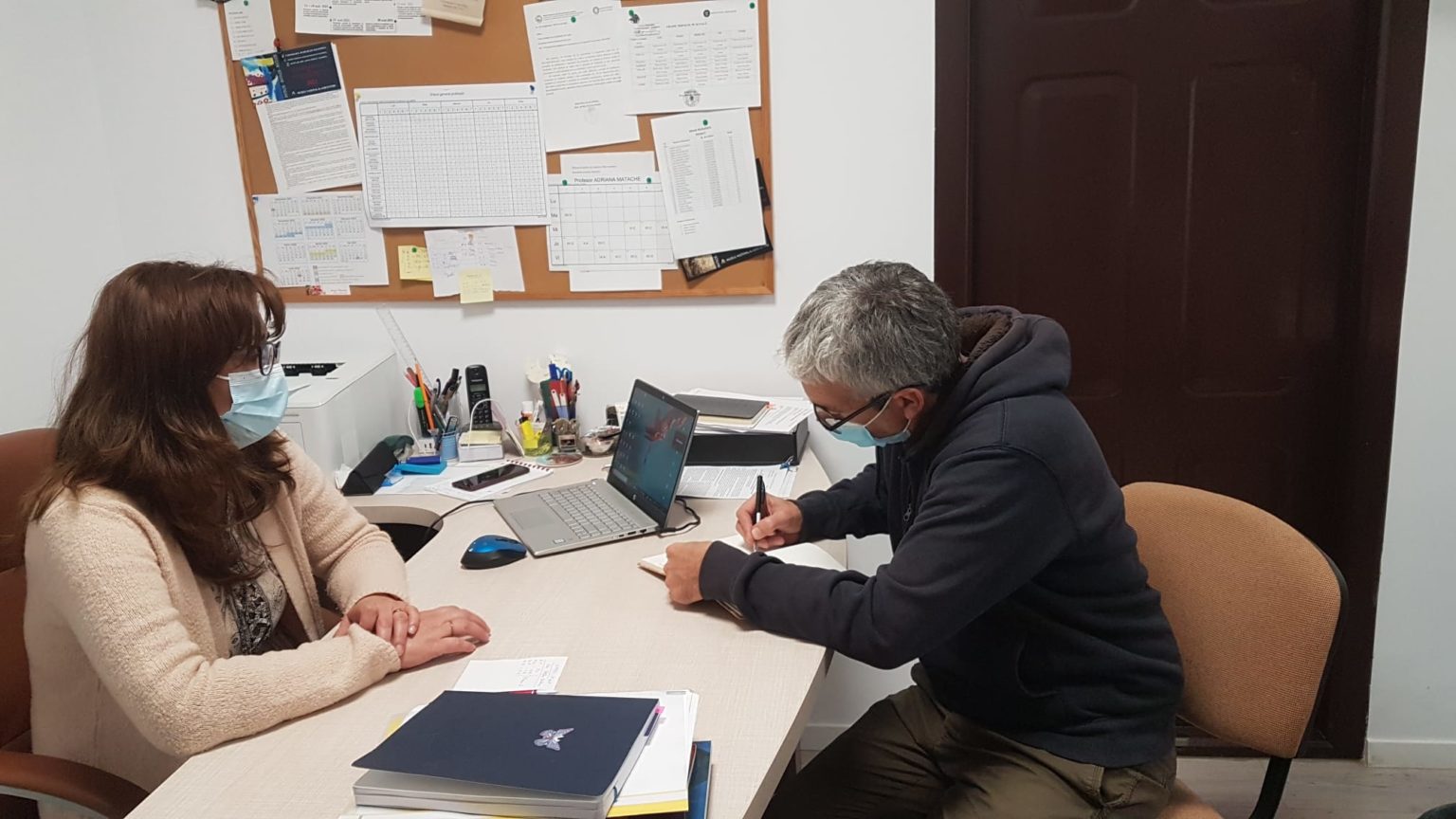
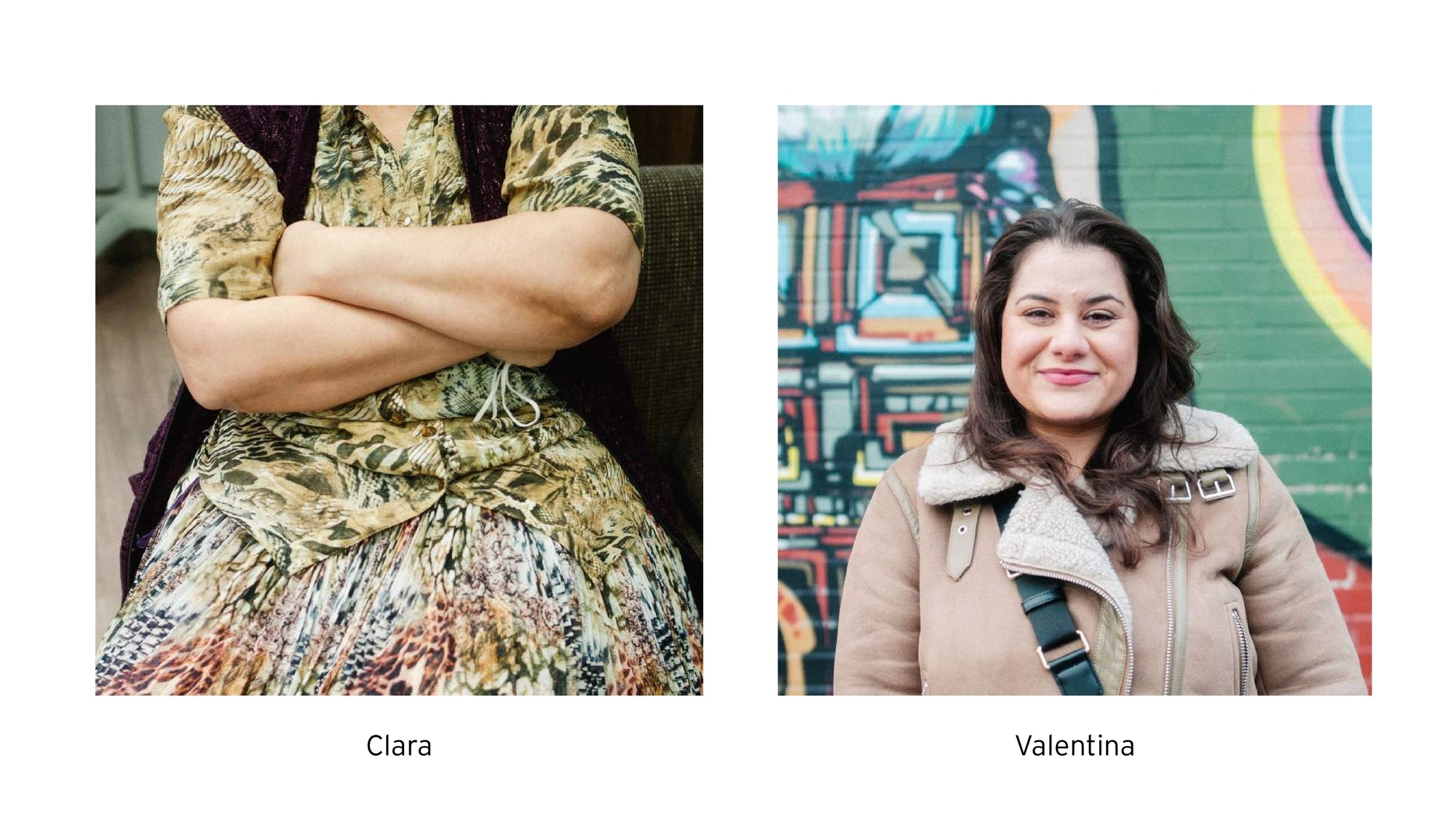
Scholarship programme in pedagogy
Another project whose main activity was mentoring was the “Scholarship Programme in Pedagogy”. This project lasted for a period of 6 years (2014-2020) and was addressed to Roma students from high schools with a pedagogical profile in the following countries: Romania, Slovakia, Hungary, and Czech Republic. The aim of the project was to support Roma students during high school, through a mentoring scheme and scholarships, as well as internships in kindergartens. In addition, students received assistance in finding jobs in kindergartens, especially in regions with a large number of ethnic Roma. About 580 students participated in this project. Each student benefited from individual and group mentoring sessions, the frequency of meetings being on average twice a month. The topics covered during the sessions were about students’ personal and professional development, Roma history and culture, self-knowledge and other relevant topics adapted to the needs of high school students.
The main activities of the project were to offer meditations to students in subjects like Romanian Language and Mathematics with specialized teachers, or to other subjects, depending on their needs, in order to reduce the gap between Roma students and other students. The gap is due to historical factors, especially slavery and the Holocaust, and ongoing discrimination, which have directly prevented Roma from gaining access to education. In addition, students benefited from support from within the community through the mentoring programme. The students also received a monthly scholarship during the project as well as numerous opportunities for personal and professional development, such as: a storytelling workshop with Roma actress Alina Șerban, summer camp with pedagogical themes, workshops on Roma history and culture.
In this project, the mentors also received initial and in-service training, as well as the opportunity to share their experiences working with students and to find the best solutions to support them. Most of the mentors were Roma teachers, starting from the premise that they are the most suitable to support students from a high school with a pedagogical profile, keeping in this case the correlation of the fields of activity in within the mentoring programme.
The previous presentation of the various mentoring projects emphasizes the importance of the direct benefits for the mentored people, who fully complete the mentoring programme. These additional benefits directly contribute to achieving the goals and to encouraging those in need of such a programme to actually access it. These benefits and opportunities must be presented clearly and completely from the beginning, so that the mentored people can see and understand the real benefit of the activity, but also the individual responsibilities that they have to assume during such a programme.
Among the most important benefits and opportunities that have been offered to students by the Roma Education Fund Foundation through the implemented mentoring programmes are the following: English classes, IT courses, Workshops on Roma culture and history, Paid internships within the Foundation, Mini-project grants for student activities, Monthly scholarships for students, Storytelling workshops, Summer camps with pedagogical themes.
